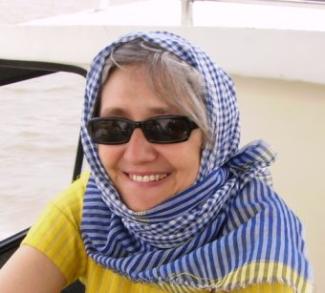Event

Please join us on Wednesday, April 18, 2018, for Dr. Ines Zupanov's talk: Antiquissima Christianità: Indian Religion or Idolatry?
Refreshments will be served at 4:00PM in the SAST conference room, Williams 826. The talk will begin at 4:30PM.
Please see below for the abstract.
-------------------------------------------
In this lecture, conversion is also at the center of the debate between various missionary and ecclesiastical actors – Jesuit missionaries, Portuguese prelates, Syrian bishops and Nasrani kattanars - in the early modern period. First, I will follow Indian and European Christians’ self-discovery as they confronted each other in the 16th and the early 17th century and provided arguments in which the concept of religion emerged as an analytical category separate from civility and politics. In particular, on the basis of the Jesuit archive, I will look into how the mappila nasranikkal inhabiting the West coast of India responded to Portuguese efforts at including them into the universal Catholic Church. The encounter with ancient Indian Christianity and its ecclesiastical and pastoral elite, who claimed a longer and more organic connection with the “primitive” Church of the early Apostle Thomas was a watershed moment in European missionary history in Asia. Forced to ethnologize and historicize these difficult, special and ancient Christians, the Jesuits applied and further developed an approach called accommodation, which they then used in other social and political contexts in India and Asia. It started as a reflection on and anxiety about the questions of appropriate customs, antiquity, sacred language and sacred books. The particular position and structure of the Nasrani or St. Thomas Christian (Cristãos de S. Thomé, Port.) ecclesiastical elite within the larger political ecosystem of what is today the state of Kerala, framed and determined both Jesuit success and failure. In the long run, St. Thomas Christians were also affected by Portuguese and Jesuit debates and pressures, as a result of which they splintered into smaller religious communities (Catholic, Orthodox and Protestant). Significantly, I will argue, it was the determination of the St. Thomas Christians to uphold their high social status in the regional political ecology that provided the Jesuit missionaries working in the continental missions, most famously in Madurai, with a principle that the “political” and the “religious” had to be separated in the process of conversion and that “caste” has nothing to do with “religion”. Inspired by the St. Thomas Christian case, a famous Jesuit, Roberto Nobili, argued that social status (i.e. high caste) was an ideal and essential predisposition for successful conversion to Catholicism, while numerous religions he identified in Madurai were to be fought with reasonable arguments directed at their learned men (Brahmans). A different opinion, by another Jesuit, according to which social customs, religious rites and caste were nothing but cogs in a “diabolical machine” of Brahmanism (bramanismo) came to disturb Nobili’s anthropological theory and open the way to the ecclesiastical quarrels of the late 17th and early 18th century and the set of phenomena that Max Weber called “disenchantment of the world”.
